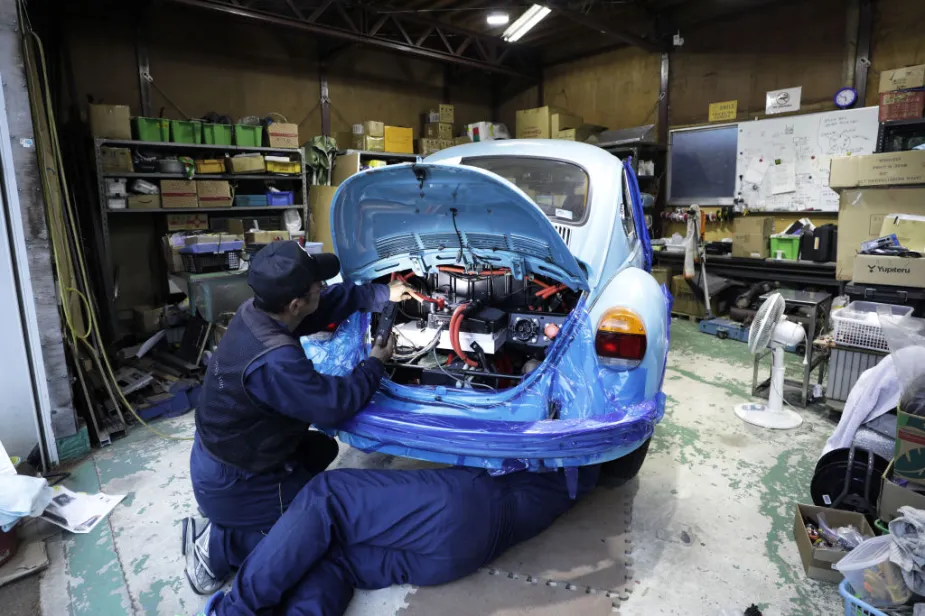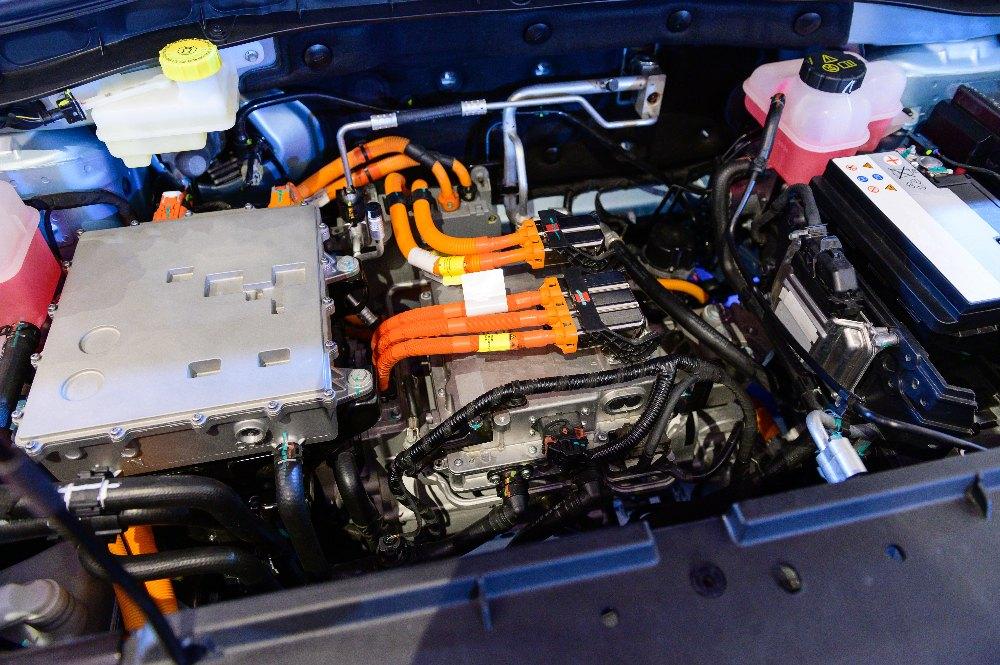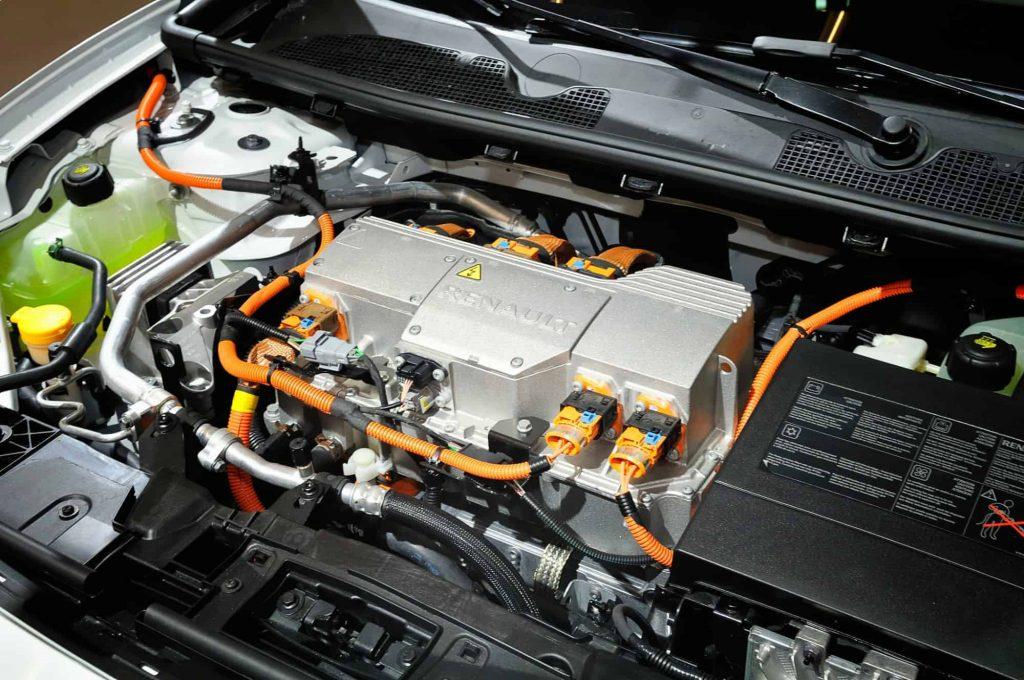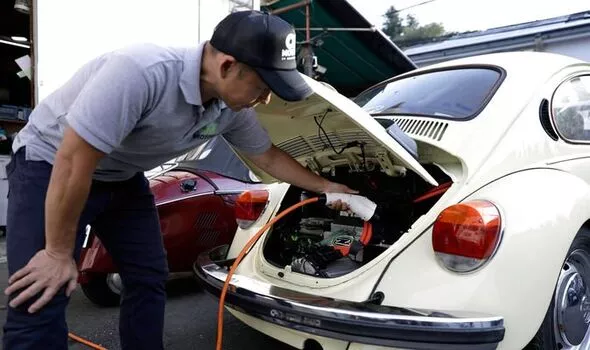Maintenance Tips Post EV Conversion
By Sebastian Orellana
Updated Feb 17, 2024

Electric vehicle (EV) conversions are an exciting and eco-friendly way to breathe new life into an older car, but they come with unique maintenance needs. This article will provide you with essential tips and guidance on how to properly maintain your converted EV, troubleshoot common issues, and when to seek professional help.
Table of Contents
Whether you're a seasoned EV owner or new to the world of electric vehicles, this comprehensive guide will help you keep your converted EV running smoothly and efficiently.
READ: The Cost of Converting a Gasoline Engine to Electric
Maintaining Your EV Conversion

As we enter an era of heightened environmental awareness, electric vehicles (EVs) are leading the charge in sustainable transportation. A particularly intriguing development is transforming conventional gasoline-powered cars into electric ones using advanced EV conversion kits. If you've recently made this switch, you'll need to adapt to a new maintenance routine, quite different from a traditional combustion engine. This article will guide you through the key aspects of maintaining your converted EV, troubleshooting common problems, understanding when professional help is needed, and taking preventive measures to ensure your vehicle's smooth operation and longevity.
While EV conversions significantly cut down on maintenance compared to their gas-guzzling counterparts, they still demand unique care practices. Each part needs regular inspection and maintenance, from crucial components like the battery and charging systems to the motor and complex electrical setup. Proper care of these systems will ensure your vehicle runs smoothly and extends its lifespan.
The electric battery, the lifeblood of your EV conversion, needs regular checks. Over time, the battery's condition can change dramatically, impacting the vehicle's performance. Regular checks can help detect significant capacity loss or unusual discharge patterns. Similarly, the charging system, another key component of your EV conversion, should be regularly inspected. A well-functioning charging system ensures your EV's battery charges optimally and safely, maximizing battery life and overall vehicle range.
While it varies by vehicle, the conversion’s systems and components generally perform best when maintained according to the manufacturer’s recommended schedule and specifications. Remember, your vehicle’s performance and longevity directly correlate with maintenance practices. Never underestimate the importance of a well-maintained EV conversion.
Regular Battery and Charging System Checks
Let's delve deeper into the routine maintenance aspects, starting with the battery system - the powerhouse of your converted EV. The battery isn’t just a single unit but a collection of hundreds or even thousands of cells, and these individual cells can behave differently over time. Therefore, regular battery checks are crucial to ensure the overall health of the battery pack.
Primarily, you should monitor the battery's energy capacity. Over time and with usage, batteries lose their ability to hold the same amount of charge as when they were new, a phenomenon known as capacity fade. Regularly tracking the battery capacity can help you spot any sudden or excessive capacity loss, which could signal potential problems with some cells.
Also, be aware of any unusual power reduction, especially during high-demand situations like rapid acceleration. This could also signify a problem with the battery pack. Personal judgment plays a significant role here, as most EV conversion kits may not include an advanced Battery Management System (BMS) that can diagnose these issues.
Next, consider the charging system, which is as critical as the battery. A faulty charging system can lead to complex issues like overcharging, undercharging, or uneven charging, drastically affecting battery life and vehicle performance. Regularly inspecting the charging system is essential to detect any potential issues promptly. Keep an eye on the charging process for any inconsistencies. It could be a warning sign if the charging time suddenly increases or decreases significantly.
Don't forget to schedule regular checkups for the connectors and cables in the charging system. They should be clean, free from physical damage, and fit securely. Loose or corroded connections can hinder the flow of electricity, leading to subpar charging. Paying attention to these details can significantly enhance the life and performance of your EV conversion.
Addressing Common Challenges with EV Conversions
As with any technology, electric vehicle (EV), conversions are not immune to occasional hiccups. Understanding these challenges can empower you to independently identify and rectify minor issues, saving time and money. Let's explore some of the common problems that may arise post-conversion.
One prevalent issue is battery drainage. This can be attributed to factors such as inefficient driving habits, overuse of heating or air conditioning, and frequent short trips involving numerous starts and stops. You can enhance battery efficiency by being mindful of these factors and adjusting your driving habits accordingly.
Another concern is range anxiety, often heightened in converted EVs lacking a sophisticated Battery Management System (BMS) with precise range prediction. To mitigate this, plan your journeys with charging stations in mind and ensure your battery is fully charged before embarking on long trips. Occasionally, you might notice a decrease in performance, such as sluggish acceleration. This is often linked to battery issues that a professional can diagnose.
Lastly, compatibility between the conversion and the vehicle's original parts is crucial. Specific components, particularly the transmission system, may not mesh well with the electric motor, affecting performance and drivability. To prevent this, ensure compatibility during the conversion process. Contact your conversion kit provider or a professional EV technician if any issues arise post-conversion.
Identifying Motor and Charging Complications
The electric motor, the lifeblood of your EV, can sometimes present issues. Signs of trouble include unexpected drops in performance, such as reduced acceleration or top speed, and unusual noises from the motor. If you encounter these symptoms, it's advisable to schedule a professional motor inspection.
Charging problems are also common in EV conversions. If your car isn't charging, inspect your charging equipment — the issue could stem from a faulty charging station, cable, or wall socket. Also, be aware of significantly extended charging times or a battery that drains faster than usual. These could be signs of a defective charging routine or deteriorating battery health warranting professional intervention.
Sharp range or driving time decreases, even after a seemingly successful charge, typically indicate battery problems. Given the high battery pack replacement cost, these issues can be particularly concerning. If you observe these symptoms or any battery-related warning lights on your dashboard, promptly seek professional assistance. Remember, EV batteries can be dangerous if mishandled, so it's best to leave repairs to the experts.
READ: How Much Does It Cost to Convert an Old Car to EV?
Securing Expert Maintenance for Your EV Conversion

Securing expert maintenance for your EV conversion is critical in prolonging your vehicle's lifespan and optimizing its performance. Recognizing when it's time to turn to professionals for your EV's upkeep can prevent minor issues from escalating and can also boost performance and longevity.
As a rule of thumb, having your EV conversion inspected annually is beneficial, even if there aren't any glaring issues. Regular maintenance can spot potential problems before they become major headaches. Specific EV components, like the battery's coolant systems and high voltage interconnections, demand the expertise of a professional for inspection and servicing. Attempting to handle these components yourself can lead to severe complications for both the vehicle and the individual.
It's important to remember that EV conversions involve unique modifications that aren't standard in factory-built or conventional internal combustion vehicles. As such, not all mechanics have the expertise to address specific conversion-related issues. It's advisable to seek out a repair shop specializing in electric vehicles or having a track record with EV conversions. These professionals are more likely to understand the nuances of a converted EV and provide precise and effective solutions.
Even the most skilled DIY enthusiast can overlook something, and routine professional maintenance of your converted EV can ensure longevity. Moreover, a professional can provide invaluable advice based on their extensive experience with EVs and conversions, helping you avoid potential issues down the line.
Recognizing When Professional Assistance is Required
Every EV conversion owner must recognize when to call in the professionals. Regardless of your DIY skills or mechanical experience, understanding that some issues require a professional's expertise is key, especially when dealing with intricate components and systems.
For instance, if you're facing ongoing issues with your EV charging system, it might be time to seek professional help. If basic troubleshooting hasn't resolved issues like extended charging times, insufficient power after a full charge, or a complete lack of charging, it's time to consult an expert. Ignoring these charging issues can lead to a decline in your battery's performance and lifespan, resulting in costly replacements.
Motor problems also warrant professional attention. If you detect unusual noises, performance changes, or other unexplained behaviors from your electric motor, these could be early signs of problems that could worsen if left unchecked.
Even in the absence of immediate issues, an annual checkup by a specialist can prevent significant problems in the future, given the complexity of the electric systems and the data processing involved. Professional services are essential if you don't have the time, skills, or equipment for regular maintenance.
Lastly, any visible damage to your car’s batteries, such as leaks, cracks, or swelling, should immediately trigger a visit to your EV professional. Mishandling these situations could lead to hazardous conditions, including fires or electric shocks. Expert intervention ensures a safe and efficient repair or replacement process.
Choosing the Right Professional for Your EV Conversion

Choosing a professional service provider with the right expertise is crucial when maintaining your EV conversion. Not all auto shops have the necessary knowledge or tools to cater to the unique needs of an electric vehicle, especially one that's been converted. Therefore, it's vital to make an informed decision when selecting a service provider to ensure the longevity and efficiency of your EV conversion.
Start by seeking out providers with a strong background in electric vehicles, including conversions. These specialists will understand the intricacies of EV-specific issues and have the right tools to address them.
Before settling on a provider, verify their credentials and reputation. Look for certifications in electric vehicles, green initiatives, and advanced automotive technologies. Client reviews and ratings can also provide insight into the quality of their service.
Engage them in a conversation about their experience with EV conversions similar to yours. Discuss the issues you're facing and assess their knowledge and approach. A reputable service provider will engage in a dialog, answer your questions, and explain their proposed solutions in layman's terms, avoiding unnecessary technical jargon.
Don't forget to consider cost-effectiveness. While quality often comes at a price, the most expensive service isn't always the best, and the cheapest isn't always the worst. Strive to find a balance between cost and quality by comparing the prices and services of various providers.
Finally, inquire about their warranties and guarantees on maintenance and repairs. A reliable service provider will stand by their work and offer guarantees for the repairs they perform and the parts they install. This gives you peace of mind and shows your confidence in your work.
Proactive Care for Your EV Conversion
Proactive measures are key to preserving the performance and integrity of your EV conversion. Using your EV correctly and staying on top of its unique maintenance needs can prevent potential issues that could compromise your car's functionality and longevity.
The proactive approach aims to nip potential risks before they escalate into major problems. It involves understanding proper EV usage, performing timely and effective maintenance, and being vigilant for early signs of potential issues.
Your driving habits play a significant role in the health of your EV conversion. This includes your driving style, charging habits, and car management under varying weather conditions. All these factors can influence the health of your electric motor and battery pack. Therefore, adhering to optimal usage parameters is crucial to proactive maintenance.
Regular maintenance is another cornerstone of the proactive approach. This involves routinely checking the critical components of your EV conversion, such as the batteries, motor, charging system, and connecting cables. Regular inspections can help detect potential issues before they result in costly repairs.
Being proactive and vigilant about potential issues is the key to ensuring the longevity and efficiency of your EV conversion. A proactive maintenance approach minimizes downtime and saves money in the long run by reducing the risk of major repairs or replacements.
Optimizing EV Performance Through Proper Usage and Battery Care
The optimal performance and longevity of your converted electric vehicle (EV) largely depend on how you use it and care for its battery. The battery, a vital component of your EV, requires careful attention and maintenance.
Understanding and respecting the range of your EV is a crucial first step toward its proper usage. Consistently pushing your EV to its maximum capacity and frequently draining it can lead to declining battery health. Instead, commuting within a comfortable range for the battery promotes its longevity.
Charging practices also play a significant role in battery care. Ideally, start charging your EV battery when it drops to around 20% and stops at about 80%. This practice helps avoid straining the battery, which can occur if you regularly charge it to complete and deplete it to zero.
Moreover, the climate in which you charge your EV can impact the battery's health. Setting in a moderate and consistent environment can enhance battery longevity. Avoid charging in extremely high or low temperatures.
While rapid charging systems may seem convenient, they can cause the battery to heat up significantly. Frequent overheating can speed up battery degradation. Therefore, use fast chargers sparingly and stick to standard charging whenever possible.
If you plan to leave your EV unused for a while, ensure the battery isn’t fully discharged. Storing it with around 50% charge can help reduce battery stress during storage.
READ: What is Needed to Convert a Car to Electric?
Preventive Checks: Key to Maintaining Your EV Conversion
Preventive checks are an integral part of maintaining your EV conversion. Regular inspections can help identify and address potential issues before they become serious problems.
Start with visual inspections. Look for any physical damage to the vehicle or the battery pack, such as leaks, cracks, or bulges. Address any physical damage immediately to prevent hazards like fires or electrical shorts.
Keep an ear out for any unusual noises from the electric motor or changes in its performance. If the vehicle doesn’t accelerate or handle as it usually does, it could signal a problem with the engine.
Regularly check the charging system. If the vehicle takes longer to charge or isn’t holding the charge as expected, it could indicate an issue with the charger or the battery pack. Keep track of your typical charging time and range to spot any deviations.
Don't forget to inspect other electrical components, such as control units, converters, and auxiliary devices. Malfunctions in these parts can affect vehicle performance. Be alert for system error messages or anomalies like flickering lights or unusual electronic behavior.
Lastly, ensure the brake system and tires are in good condition. Due to the added weight from the battery packs, EVs may experience increased brake and tire wear. Regular checks can ensure safety and efficiency.
By implementing these preventive checks, you can significantly enhance your EV conversion's performance, durability, and reliability, ensuring years of efficient use.
